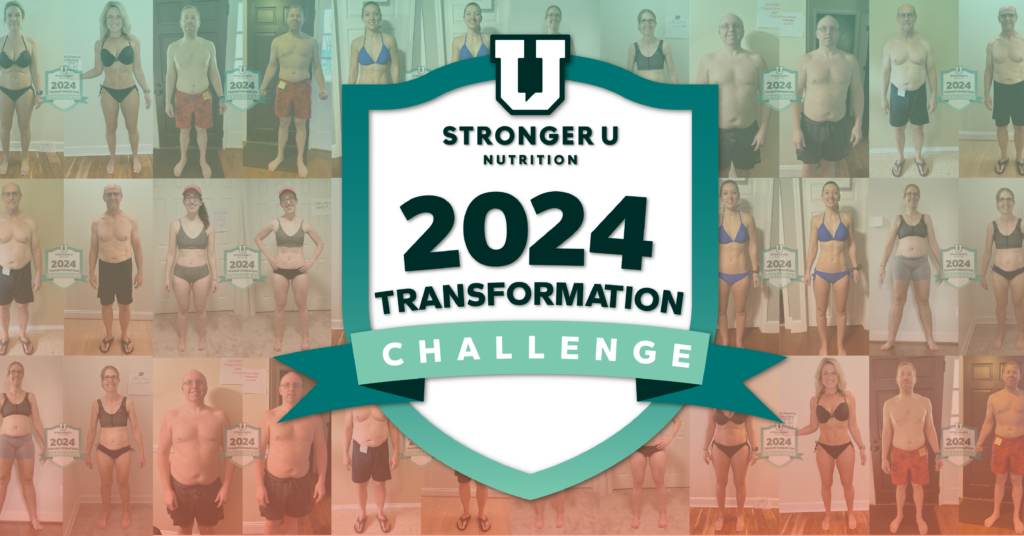Every February there are hearts everywhere. From those fun little Valentine’s Day heart candies to heart-shaped boxes of chocolate, it’s impossible to go through the month of February and avoid the anatomically incorrect heart. But February, with all of it’s Valentine’s festivities, is also American Heart Month. Because if we’re sharing our hearts with the ones we love, what better time to be sure you’re paying attention to taking care of that heart, right? So in an effort to make sure that we’re all trying to take care of ourselves, inside and out, we’re going to be coming out with a few deep-diving blogs into heart health.
Most of us are aware of heart disease. It’s so widespread that it’s hard to meet someone who hasn’t been personally affected. But what’s interesting is that things have actually gotten significantly better in the past 50 years, making American Heart Month one of the most successful public health initiatives in United States history.
American Heart Month was started by President Lyndon B. Johnson back in 1964. Heart disease, even today, is the leading cause of death for men and women in the United States, with 1 in 4 deaths caused by heart disease every year. But back in the 50’s and 60’s heart disease was even more lethal, hitting its peak in 1950. By 1964, Johnson and the federal government knew something had to be done, and in the time since Johnson’s first initial address to announce a new public health initiative, American Heart Month has become one of the largest public and private joint efforts in all of history.
But despite all of the positives, heart disease remains one of those chronic diseases that tend to fly under the radar, with high blood pressure even being referred to as “the silent killer”. It’s something that’s seemingly easier for us to forget about, despite the constant barrage of information and reminders to take care of our health and our heart.
When you search the Internet and all of the information that organizations like the Mayo Clinic, the CDC, and others put out it’s not hard to find lots of tips about specific foods you can eat and basic tips to help take care of yourself. But among all of those resources, there’s something that continually shows up.
What is the common theme when it comes to improving heart health?
Look at the Mayo Clinic, for example. Item #1 on their top tips to prevent heart disease? Control portion size. Go further down the list and you see things like prioritizing fruits and vegetables and limiting the amount of fat you take in. Why do these things work? The answer is two-fold. There’s evidence that limiting certain types of fat might help you take care of your ticker. But additionally, any experienced SU’er knows just how surprising it is when we learn how many calories we’re actually taking in from fat when we start tracking our food intake. When we start limiting fat intake, that’s an easy way to limit extra calories that find their way into our diet.
And that brings us to our most important point: genetics play a role in our health, but when it comes to taking care of our heart, being overweight or obese puts serious additional strain on your heart. It forces your heart to work harder to move blood throughout the body and it can lead to more fat in the blood vessels forming plaque. Losing weight can have such a dramatic impact that Dr. E Dean Nukta says that:
“There is no doubt that just by losing 5 to 10 percent of your body weight, you can reduce the risk of heart attack and stroke.”
Why does losing weight help heart health?
Losing weight works for a number of reasons. It reduces the amount of work your heart is having to do with each pump, helps to clear the plaque that builds up in our blood vessels, and most surprisingly to some: losing weight helps us eliminate body fat that accumulates around our stomach and heart, which can increase our risk of heart disease compared to more evenly distributed body fat.
This is why we can’t stress it enough: when looking to take care of your heart the most important thing you can do, by far, is get to a healthy weight and a healthy body fat level. This doesn’t mean that you need to have a six-pack, though. Weight doesn’t tell the full story, however. This is why we track various forms of progress like scale weight, waist measurements, progress pictures, and non-scale victories like PR’s in the gym and how our clothes fit. When it comes to heart health, waist measurements, in particular, tend to be a strong predictor of increased risk of heart disease. The National Heart, Lung, and Blood Institute says:
“Women with a waist size greater than 35 inches and men with a waist larger than 40 inches are at higher risk for heart disease and Type 2 diabetes”
So if you want to where to start, it’s at the waist. Waist measurements aren’t the end-all-be-all of tracking progress, but clearly waist measurement is tied to heart health, and if that’s a concern of yours, that’s an area that could be good to focus on. We all know that losing weight can feel daunting, however, it is doable. Here at Stronger U, we’re big fans of teaching you how to track your food intake. We believe by doing so teaches you more about where your food comes from, helps you prioritize health-supporting foods like lean protein, and fruits and vegetables.
But more than that, that process of continually learning about our eating habits, seeing how we can make progress on the scale and measurements, and continually refining our approach teaches us a skill-set that we truly never forget. We learn what proper portions look like, we learn where hidden calories come from, and we develop the tools necessary to navigate the calorie-dense food landscape we deal with on a daily basis. It’s often said that an ounce of prevention is worth a pound of cure, and nowhere is that more clear than when we take time to learn how to properly eat to control our weight and take care of our heart.
So if you’re interested in losing weight, aren’t sure where to start and want to learn more about how to track and get a rough idea of how much food you should be eating, this is a great place to start. And if you want to learn more about why learning to track our food intake can have such dramatic impacts on our health, this blog will be right up your alley.
Wait, but what about specific foods and supplements?
It seems like every month there’s some new headline that comes out about a specific food or supplement that is bound to improve your heart health. We’ve seen red wine have its 15-minutes of heart health fame and the same with supplements like Niacin. So how much truth is there to this?
One thing we have to understand about these media stories that come out about specific foods and how they might have an impact on our health: what is typically being talked about is a compound within that food itself. When we’re talking about compounds that show up in something like red wine we have to remember that those compounds aren’t unique to that specific food.
And this is where certain stories like that can be dangerous. For example, if someone is already an avid drinker and hears that drinking moderate amounts of red wine during the week might improve their heart health, that might lead that person to drink more during the week than they previously were. While that individual might think they’re doing plenty to take care of their heart, they’re actually heading in the wrong direction by drinking more alcohol, which is closely tied to heart failure.
When, in reality, if we’re talking about the example of red wine and heart health, the compound in red wine that’s tied to heart health is reservatrol. Reservatrol isn’t just found in red wine though. It’s found in red grapes, peanuts, blueberries, and cranberries. So for our hypothetical example above, that person didn’t need to add in more red wine to get more reservatrol. They could’ve done so through plenty of other food sources. But what’s more, when we try to pin our health hopes on specific foods or compounds we’re playing an awfully dangerous game. The world of food and health science is constantly evolving. We learn new things every year, and some of those things can upend our understanding of what we thought used to be a superfood, like reservatrol.
Now, we don’t say all of this to imply that specific foods or supplements can’t play a role in improving your heart health. There’s strong evidence that things like garlic, vitamin K2, and taurine can all play a role in improving your cardiovascular health. But this is where we defer to our friends over at Examine.com. They specialize in breaking down all of the available research on specific foods and supplements and provide unbiased reports on what the research actually says. When it comes to heart health, they have an outstanding blog on 5 supplements and foods that you can reasonably count on as having some impact on heart health.
So what should your takeaway be?
If you showed up on this blog expecting a list of 5 specific foods you could eat that are bound to help your heartbeat just a bit more smoothly, I hate to disappoint you. But here at Stronger U, we aren’t in the business of highlighting just one specific thing people should eat or pay attention to. We’ve worked with enough people by now to know that weight loss and improving our health is a multifactorial process. There’s hardly ever one specific tip or trick that someone could follow, and if there was, there’s a good chance the entire world would know about it.
Instead, what we should strive to understand is that when we’re talking about taking care of our heart, it’s not actually that different than other things like weight loss. It all comes down to the fundamentals. You know, those unsexy things that don’t make headlines but do work.
A few key fundamentals we believe in:
- Tracking your food intake
- Prioritizing lean protein + fruits and vegetables
- Move your body regularly
- Drink half your body weight in ounces of water
Those are time tested strategies that haven’t stopped working. They allow us to take care of ourselves from a holistic point of view, not leaning on any single strategy to carry the load. Practicing these things regularly not only helps you look and feel better, it helps you live a longer and healthier life. So this February, pay a bit more attention to the foods you’re eating. Put a bit more care into managing your portions. Move your body. Drink plenty of water. And do those things often. And if you are interested in learning more about your own specific heart health, consult your Doctor!
Let’s all have a happy and healthy February. And this month stay tuned for deep diving blogs where we’ll talk all about salt and it how impacts blood pressure and then get ready to go to school as we learn about the intricacies of dietary fat and which sources of fat can help you take care of your ticker.
Interested in learning more about Stronger U? Email us at info@strongeru.com or to schedule a free informational phone call with someone on our Member Experience Team just CLICK HERE! Can’t wait to hear from you!









